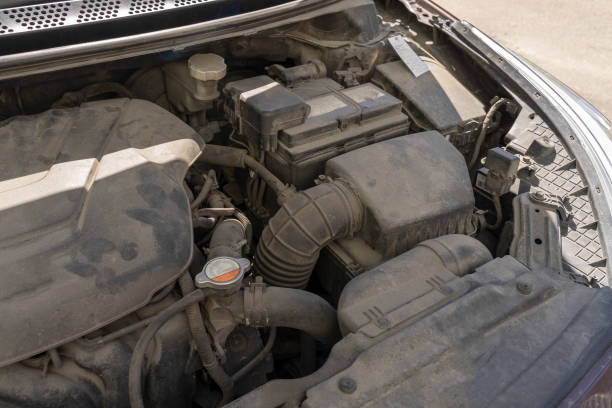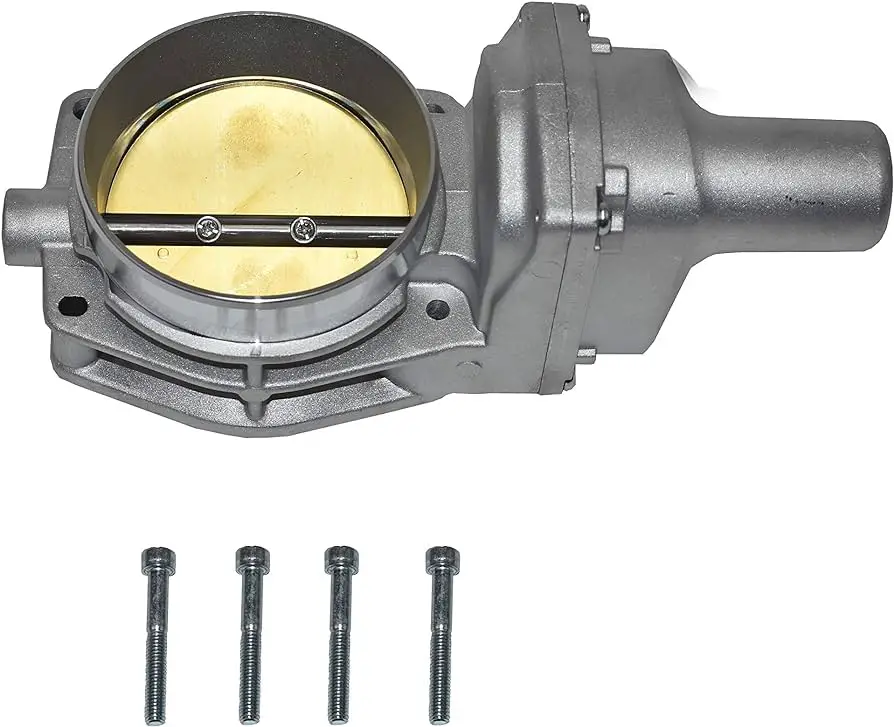The weight of the LS3 engine is approximately 470 pounds without accessories. The LS3 engine, known for its power and reliability, has a weight of 470 pounds unadorned.
The LS3 engine, widely recognized for its impressive performance and durability, has gained a reputation as one of the most powerful engines in its class. With its lightweight construction and exceptional power output, the LS3 has become a popular choice for various applications, including sports cars, hot rods, and muscle cars.
Whether you’re a performance enthusiast or a professional mechanic, understanding the weight and capabilities of the LS3 engine is crucial for selecting the right powertrain for your specific needs. We’ll delve into the specifications and features of the LS3 engine, providing valuable insights into its weight and performance characteristics.

Credit: www.amazon.com
Understanding Ls3 Weight
Understanding LS3 Weight is essential for anyone involved in performance engineering or automotive enthusiasts. It is crucial to comprehend the impact of weight on LS3 engines and its significance in overall performance. This section will delve into the importance of LS3 weight and how it affects performance, as well as the factors to consider.
What Is Ls3 Weight?
The LS3 weight refers to the total mass of the LS3 engine, including all its components such as the block, cylinder heads, intake manifold, exhaust system, and other accessories. Understanding the individual and collective weights of these components is crucial in optimizing the performance of the engine and the vehicle as a whole.
Importance Of Ls3 Weight In Performance
LS3 weight directly impacts the performance of a vehicle, affecting acceleration, handling, fuel efficiency, and overall agility. Reducing the weight of an LS3 engine can lead to significant improvements in speed and responsiveness, as well as enhanced fuel economy. Therefore, optimizing the weight of the LS3 engine is a fundamental aspect of performance tuning and racing applications.
Benefits Of Ls3 Weight Upgrade
Upgrading to LS3 weight offers a range of advantages that can significantly enhance the performance of your vehicle. From increased power and torque to improved fuel efficiency and better handling and balance, the benefits of LS3 weight upgrades are substantial.
Enhanced Power And Torque
The LS3 weight upgrade provides a significant boost in power and torque. This means you’ll experience improved acceleration and overall performance on the road. The upgraded weight contributes to a more dynamic driving experience, giving you an edge in various driving conditions and situations.
Improved Fuel Efficiency
With the LS3 weight upgrade, your vehicle can achieve enhanced fuel efficiency. The lighter weight and improved engine performance lead to a more efficient fuel consumption, helping you save money at the pump while reducing your environmental impact.
Better Handling And Balance
By upgrading to LS3 weight, you can expect better handling and balance. The redistributed weight and improved center of gravity contribute to a more stable and responsive driving experience. This upgrade enhances the overall control and maneuverability of your vehicle, particularly during high-speed or challenging driving scenarios.
Factors Affecting Ls3 Weight
When it comes to building an LS3 engine, weight plays a crucial role in its overall performance. Understanding the factors that affect LS3 weight is important for enthusiasts and car builders alike. In this article, we will explore three key factors that contribute to the weight of an LS3 engine: comparison with stock weight, materials and components, and weight distribution.
Comparison With Stock Weight
Before diving into the factors that affect LS3 weight, it is essential to have a baseline to compare it against. The stock weight of an LS3 engine varies depending on the year, model, and modifications. However, on average, an LS3 engine weighs around 415 pounds.
Compared to the stock weight, aftermarket LS3 engines may have different configurations and modifications that can affect the final weight. These modifications can include lightweight components, upgraded materials, or performance enhancements.
Materials And Components
The choice of materials and components used in an LS3 engine significantly impacts its overall weight. Car manufacturers and aftermarket suppliers are continuously developing innovative ways to reduce weight without compromising strength and durability.
To reduce weight, lightweight materials such as aluminum, titanium, and carbon fiber are often used for components like cylinder heads, engine blocks, and intake manifolds. These materials offer excellent strength-to-weight ratios, making them ideal for high-performance applications.
Furthermore, advancements in manufacturing techniques enable the creation of precision-engineered components that are lighter without sacrificing quality. Lightweight pistons, connecting rods, and crankshafts can contribute to weight reduction in an LS3 engine, enhancing its performance.
Weight Distribution
Another important consideration affecting the overall weight of an LS3 engine is the distribution of weight. Achieving optimal weight distribution can enhance the handling, balance, and overall performance of the vehicle.
Car designers and builders strategically position heavier components, such as the engine block, towards the center of the vehicle to improve weight distribution. This helps to reduce unnecessary weight on the front or rear axle, resulting in improved handling and stability.
Additionally, the location of auxiliary components, such as the intake manifold, exhaust headers, and accessories, can also impact weight distribution. By optimizing the positioning and design of these components, car builders can fine-tune the weight distribution to suit specific performance goals.
Understanding the various factors that contribute to LS3 weight is vital when optimizing engine performance. By considering the comparison with stock weight, materials and components, and weight distribution, enthusiasts can make informed decisions to achieve their desired performance outcomes.
Ls3 Weight Reduction Techniques
Introduction:
The LS3 engine is known for its impressive power and performance, but it also comes with a significant weight that can impact the overall handling and speed of a vehicle. In this blog post, we will explore various weight reduction techniques specifically designed for LS3 engines. By implementing these techniques, you can optimize your LS3 engine’s performance and improve its overall agility.
Engine Modifications
One of the most effective ways to reduce the weight of an LS3 engine is through careful engine modifications. Here are a few techniques you can consider:
- Aluminum Cylinder Heads: Replace the heavy cast-iron cylinder heads with lighter aluminum ones. Aluminum heads not only significantly reduce weight but also improve heat dissipation, resulting in enhanced performance.
- Lightweight Pistons: Use lightweight pistons made from materials like forged aluminum or titanium. These pistons not only help reduce weight but also improve engine responsiveness and acceleration.
- Performance Intake Manifold: Upgrade your LS3 engine with a high-performance intake manifold that is designed to be lightweight without compromising on performance. This will improve airflow and enhance engine power while reducing overall weight.
Exhaust System Upgrades
The exhaust system plays a vital role in the performance of an LS3 engine, and optimizing it can lead to significant weight reduction. Consider the following upgrades:
- Headers: Replace the stock exhaust headers with high-quality aftermarket headers made from lightweight materials like stainless steel or titanium. These headers not only reduce weight but also improve exhaust flow for better engine performance.
- Performance Catalytic Converters: Upgrade to high-flow catalytic converters that are designed to be lighter and less restrictive, reducing backpressure. This improvement increases engine power while reducing overall weight.
- Lightweight Exhaust System: Replace the stock exhaust system with a lightweight aftermarket system made from materials such as carbon fiber or titanium. This upgrade reduces weight and allows for better heat dissipation, improving overall engine performance.
Lightweight Component Replacement
In addition to engine modifications and exhaust system upgrades, replacing heavier components with lighter ones is another effective way to reduce the overall weight of your LS3 engine. Consider the following replacements:
| Component | Replacement |
|---|---|
| Flywheel | Replace the stock flywheel with a lightweight flywheel made from materials like aluminum or carbon fiber. |
| Battery | Opt for a lightweight lithium-ion battery instead of a traditional lead-acid battery. |
| Brakes | Upgrade to lightweight high-performance brake components made from materials like carbon ceramic or aluminum instead of traditional cast iron. |
By implementing these LS3 weight reduction techniques, you can enhance your engine’s performance and responsiveness while improving overall handling and agility. It’s important to note that while weight reduction is crucial, it should be done carefully to avoid compromising the structural integrity and safety of the vehicle.
Tips To Maximize Ls3 Weight Savings
When it comes to high-performance engines, weight reduction plays a vital role in improving overall performance. The LS3 engine, known for its power and efficiency, can further be optimized to shed unnecessary weight. In this blog post, we will explore some valuable tips to maximize LS3 weight savings. By carefully choosing the right components, optimizing weight distribution, and regular maintenance, you can enhance the performance and agility of your LS3 engine.
Choosing The Right Components
To achieve significant weight savings with your LS3 engine, the initial step begins with carefully selecting the right components. Lighter materials, such as aluminum and carbon fiber, can replace heavier stock parts without compromising functionality or reliability. Consider upgrading to aluminum heads, intake manifold, and throttle body, which not only reduce weight but also improve the engine’s efficiency and response.
Another crucial aspect to focus on is the exhaust system. Opt for lightweight headers, and exhaust pipes made from stainless steel or titanium. These materials offer a perfect balance between durability and weight reduction, ensuring superior performance without compromising strength.
Additionally, replacing heavy steel components, such as the flywheel and flexplate, with lightweight alternatives can further reduce the overall weight of the LS3 engine. Consider using a carbon composite flywheel, which not only reduces weight but also provides smoother and quicker revs.
Optimizing Weight Distribution
While selecting light components is essential, it is equally important to optimize weight distribution for maximum efficiency. Proper weight distribution ensures improved handling characteristics and reduces unnecessary stress on specific parts of the LS3 engine.
A key component to focus on is the transmission. Choose a lightweight transmission with a suitable gear ratio to balance the weight distribution. This provides enhanced control and responsiveness, ultimately improving the overall performance of the LS3 engine.
Furthermore, relocating heavy components, such as the battery or air intake, to a more central position can help distribute weight evenly throughout the vehicle. This modification not only reduces weight but also improves stability and handling through better weight distribution.
Regular Maintenance
A well-maintained engine not only performs at its best but also helps save weight in the long run. Regularly inspecting and maintaining your LS3 engine ensures efficient functioning and minimizes unnecessary weight gain due to wear and tear or neglected components.
Regularly clean and inspect the intake system, ensuring there are no obstructions or debris that could potentially add unnecessary weight. Clean the air filters, pipes, and throttle bodies regularly to maintain optimal airflow and engine efficiency. Additionally, regularly check for any leaks or loose connections in the exhaust system to prevent excess weight and ensure proper performance.
Moreover, always adhere to the recommended maintenance schedules for oil changes and filter replacements. Using lightweight synthetic oils and high-quality filters can reduce engine weight by minimizing friction and enhancing overall performance.
In conclusion, maximizing LS3 weight savings is an essential aspect of achieving peak engine performance. By choosing the right components, optimizing weight distribution, and regularly maintaining your LS3 engine, you can shave off unnecessary pounds and unlock its true potential.

Frequently Asked Questions On Ls3 Weight
How Much Does An Ls3 Engine Weigh?
The LS3 engine weighs approximately 418 pounds, making it one of the lighter V8 engines available. This weight includes the intake manifold, ignition system, exhaust manifolds, and all necessary accessories. Despite its lighter weight, the LS3 engine still offers impressive power and performance.
What Is The Advantage Of A Lightweight Ls3 Engine?
The lightweight design of the LS3 engine provides several advantages. Firstly, it improves the overall performance of the vehicle by reducing the weight on the front end, enhancing acceleration and handling. Secondly, it improves fuel efficiency due to the reduced weight.
Lastly, the lighter engine reduces strain on other components, enhancing durability and reliability.
How Does The Weight Of An Ls3 Engine Impact My Vehicle’s Performance?
The weight of the LS3 engine has a significant impact on the performance of your vehicle. The lighter weight allows for better weight distribution, resulting in improved handling and cornering abilities. Additionally, the reduced weight contributes to quicker acceleration and enhanced fuel efficiency.
Overall, the lighter LS3 engine enhances both the power and efficiency of your vehicle.
Conclusion
To sum up, the LS3 Weight is a crucial factor when considering an automotive engine. With its lightweight design, this engine provides various advantages, such as improved fuel efficiency and better overall performance. The weight reduction achieved in the LS3 engine ensures optimal balance and handling, enhancing the driving experience.
With all these benefits, it’s clear that the LS3 Weight plays a significant role in delivering an exceptional driving performance without compromising on power and efficiency.

